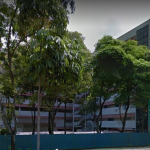The Hays Salary Guide 2019 findings say that salary increases in Singapore will take a hit this year. Salaries for professionals in a wide range of industries are likely to face downward pressure through 2019, as companies predict conservative increases in the year ahead.
The Hays Asia Salary Guide 2019 is a report that highlights salary and recruiting trends based on responses from Hays Asia operating markets Mainland China, Hong Kong, Japan, Malaysia, and Singapore.
The report has revealed a prevalence in salary stagnation in Singapore, culminating in almost one in five (17 per cent) employees experiencing no increase in their salaries over the last year, higher than the country’s historical norms.
In addition, signalling salary inertia in Singapore was the stark rise in employers reporting conservative increments which are up to three per cent. In 2018, nearly one in three (32 per cent) employers had intended salary raises by this amount, but this figure leaps to 40 per cent in 2019.

Salary the Key
Salaries remain the primary consideration for employees in Singapore. Although more than half (57 per cent) of employees claim to be ‘satisfied’ with pay levels, only four per cent claim to be ‘very satisfied’.
According to Hays experts, employers looking to retain their best talent should review their salary increment plans, particularly because three in five professionals (60 per cent) cite compensation packages as the key reason for seeking out new roles, and it is the second most common reason for staying with a current employer.
Singapore candidates have also raised concerns over the transparency of pay level setting. Although a clear majority (86 per cent) of employees feel that transparency is important, only one in ten (11 per cent) strongly agree and one in five (22 per cent) slightly agree that their organisation is transparent in this area.
“With positive sentiments surrounding the growth of the economy, business activity and hiring levels, employees may begin to wonder why this improvement is not being passed on to them in terms of compensation packages, perhaps leading them to rival organisations that could meet their salary expectations. Employers looking to keep employee satisfaction levels on salary matters should, therefore, be more upfront about how the management reviews and distributes employees’ pay rises,” comments Grant Torrens, Regional Director at Hays Singapore.
https://www.icompareloan.com/resources/gloomy-property-market/
Bonuses and Benefits
The Hays Salary Guide 2019 reveals that fewer companies are compensating employees through alternative means. Employers who stated that they offered no bonus as part of remuneration packages increased from nine per cent in 2018 to 12 per cent this year.
While the percentage of guaranteed bonuses is also declining (67 per cent in 2018 vs 63 per cent in 2019), slightly more employers are instead tying them to factors such as individual, company and team performance.
On top of offering bonuses, most companies (83 per cent) offer benefits in addition to financial packages. Health and medical benefits remain the primary offering.
Singapore leads the way in Asia in offering health and wellness programmes to employees as an added benefit. While on an Asia-wide average, only a quarter (25 per cent) of companies adopt such practice, nearly one in three (32 per cent) Singaporean employers provide it.
Raises
“For employees who do not feel that their compensation package matches up to their worth, we advise them to reach out to employers and request salary increases,” adds Grant.
Table of Contents
“We realise that while only 36 per cent of the employees surveyed had asked for an increment, 15 per cent did so successfully. That means employees have a good chance of getting a pay rise by bringing it up to their line managers.”
“However, those requesting raises should consider the possibility of rejection and thus keep an open mind to potential responses from employers. Instead of salary increments, employees might be offered non-monetary benefits, improved work-life balance or a salary review at a fixed date soon. Failing that, employees could stand to benefit in becoming more active in the recruitment market, as the improving economy and optimistic business outlook are leading to greater hiring activity in Singapore.”
Commenting on the Hays Salary Guide 2019 findings, chief mortgage consultant of iCompareLoan, Paul Ho, said:
“With salary increases moderating and with housing being one of the biggest expenditures many expect to invest in, it is crucial for both homeowners and tenants to determine how much of their income they should set aside for housing costs, such as mortgage payments or rent along with utilities, maintenance charges or homeowners insurance.”
He added: “As a general rule of thumb, housing experts advise that homeowners or tenants should not spend more than 30-40 per cent of their gross monthly income on housing costs. This is so that individuals can afford basic necessities like food, healthcare, and transportation each month while being able to set aside some personal savings.”
https://www.icompareloan.com/resources/foreign-investor-demand/
How to Secure a Home Loan Quickly
Are you concerned about salary increases and your ability to purchase the dream home? Don’t worry because iCompareLoan mortgage broker can set you up on a path that can get you a home loan in a quick and seamless manner.
Our brokers have close links with the best lenders in town and can help you compare Singapore home loans and settle for a package that best suits your home purchase needs. Find out money saving tips here.
Whether you are looking for a new home loan or to refinance, the Mortgage broker can help you get everything right from calculating mortgage repayment, comparing interest rates all through to securing the best home loans in Singapore. And the good thing is that all our services are free of charge. So it’s all worth it to secure a loan through us.
For advice on a new home loan.
For refinancing advice.






